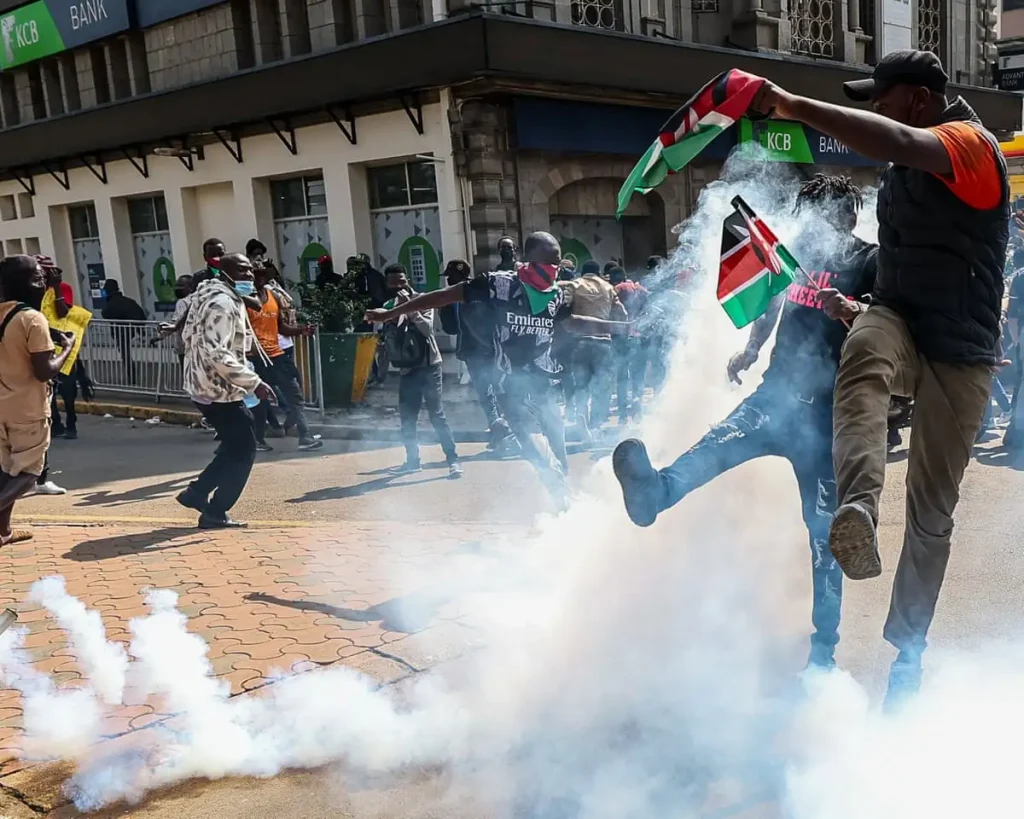On March 27, 2023, Kenyan police used tear gas and water cannons to disperse protesters in Nairobi demonstrating against the escalating cost of living, defying a police ban announced by Inspector General Japhet Koome on March 26. Koome declared the protests “illegal,” stating, “We will not allow violent demonstrations.”
Security was heightened with riot police deployed across Nairobi, shops closed, and train services to the central business district suspended.
The protests followed violent clashes on March 20, where a Maseno University student was killed by police gunfire, 31 officers were injured, and over 200 people, including senior opposition politicians, were arrested in Nairobi and western Kenya strongholds like Kisumu.
Opposition Defiance
Opposition leader Raila Odinga, head of the Azimio la Umoja coalition, called for weekly protests every Monday and Thursday, urging Kenyans to join “the mother of all demonstrations” despite the ban. Odinga, who claims the August 2022 election was “stolen” by President William Ruto, told supporters,
“We are not going to be intimidated, We are not going to fear tear gas and police.”
The unrest marks the first major political crisis since Ruto’s election, with Odinga framing the protests as a constitutional right to address economic grievances.
Economic Hardships Fuel Unrest
Kenyans are grappling with soaring prices for staples like maize flour, a depreciating shilling (down 20% against the USD in 2022), and a record drought leaving over 4 million food insecure, per UN data.
Ruto, who campaigned as a champion of the “hustlers,” removed subsidies on fuel and maize flour, increasing costs.
A March 2023 announcement of electricity price hikes effective April, despite Ruto’s January pledge to avoid such increases, further fueled public anger.
Inflation hit 9.2% in February 2023, exacerbating the crisis for low-income households.
Political Tensions and Ruto’s Response
Ruto, who left for a four-day trip to Germany and Belgium on March 27 to meet EU and national leaders, accused Odinga of “terrorizing the country” and disrupting businesses, urging him to pursue dialogue instead.
The Kenya Human Rights Commission criticized the police ban and use of force as unconstitutional, noting violations of assembly rights.
The protests’ timing during Ruto’s absence risks escalating tensions, with businesses in Nairobi suffering losses due to closures and transport disruptions.
Broader Implications
The protests highlight deepening economic discontent and distrust in Ruto’s administration, which faces pressure to address inflation and drought impacts.
The violent police response raises concerns about democratic freedoms, with Amnesty International Kenya reporting excessive force and calling for investigations into the student’s death.
If unaddressed, the unrest could destabilize Kenya’s economy and political landscape, especially as Odinga’s call for sustained protests signals ongoing confrontation.






